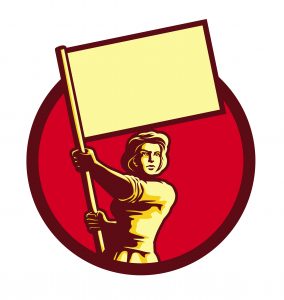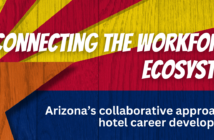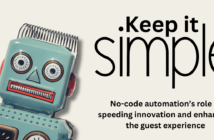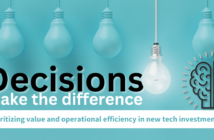The pandemic’s effects on tech and hospitality
by IAIN SHAW
Even at 2021’s halfway point, many of COVID-19’s consequences are yet to fully emerge. Some changes won’t be apparent for years, but technological shifts precipitated by the pandemic are paving the way for the industry and guests to embrace technologies that will remake hospitality, from contactless and cleaning tech to back-office operations and beyond.
Amid the pandemic, contactless tech was transformed from an exciting emerging trend into a business necessity. Momentum had been building around contactless guest experiences for several years pre-pandemic, with a number of the major players in the industry already in the space. Hilton, for example, had bedded in a number of contactless features and services via the Hilton Honors app, including Digital Check-In and Check-out, Digital Key (to unlock rooms and other facilities) and Connected Room, which allows guests to control the in-room environment and watch TV using a number of top streaming platforms.
Pre-pandemic, some of Hilton’s contactless offerings were only available to Hilton Honors members who booked through specific channels. That situation had to change swiftly as COVID-19 swept the world. “Recognizing the safety aspects of contactless technologies and the interest guests had in being able to go straight to a guest room, we expanded the availability of these technologies to guests regardless of where they booked,” said Mike Gathright, Senior Vice President, Customer Experience, at Hilton.
Hilton also intentionally emphasized its touch-free services, folding Digital Check-in and Digital Key into a singular Contactless Arrival package. Gathright said that new hotels entering the Hilton portfolio now “almost always” offer Digital Check-in and Digital Key from day one. Meanwhile, Digital Key has opened more than 111 million room doors to date.
INVISIBLE TOUCH
The pandemic’s arrival put cleaning and hygiene policies – and the technology used in their execution – front and center like never before. Much of the early focus was on sanitizing surfaces, as hotels invested in electrostatic sprayers, but hotels also began to take air quality in their properties more seriously. In the past, air quality has been an afterthought for most hotels. “The hoteliers were 100% underequipped to deal with air,” says Charlie Szoradi, CEO of Purge Virus.
Even in the early days of COVID-19, many in the business expected the crisis to be over in a few months. Szoradi describes mitigation tactics like hand sanitizers, masks, and social distancing as “surface-level mediation” – useful and necessary, yes, but papering over the real issue. “They didn’t go to the system, the core problem of COVID, which is air,” he said, adding that the CDC’s guidance could have put more emphasis on the importance of improving indoor air quality. “It’s the air, stupid,” he said, paraphrasing Bill Clinton advisor James Carville’s famous quip about the economy.
Purge offers hotels indoor air quality (IAQ) solutions based primarily on using UV light or bipolar ionization, both of which improve indoor air quality by neutralizing the threat of pathogens like COVID-19. “Ultraviolet is excellent at irradiation, preventing the COVID from replicating, and the bipolar [ionization]is preventing it from attaching [to human cells],” Szoradi said.
UV and ionization devices can be installed on individual in-room PTAC units or on central heating and cooling systems to increase IAQ throughout hotels. According to Szoradi, the technology also reduces energy waste, creating savings that Szoradi said can offset the cost of installing the devices within a year or two. The economies of scale are also huge. “The same team that spends a couple hours doing one or two rooms can spend three hours instead of two, and they can do an air handling unit that might handle 10,000 square feet,” he said.
HIT ME WITH YOUR BEST SHOT
Advances in the clean tech space also will lighten the load for housekeeping staff. EV Hotel Group is using robotic solutions to relieve housekeeping staff of the burden of cleaning bathrooms and vacuuming. Company CEO Ken Patel said the new technology has slashed MPRs that have held stubbornly in place for a generation. “The industry average has been 26 to 28 minutes for 10, maybe 20 years,” Patel said. “We’ve brought that amount down to 18 to 19 minutes.”
By grinding hospitality to a halt, the pandemic also exposed broader flaws in the industry’s use of technology. “It wasn’t that the hotels stopped making money, it was Airbnb was making money. They said ‘How is Airbnb making money and the hotels are not making money in a pandemic?’” Patel said. “And it was very simple. It was one thing. It was technology.”
Patel believes hotels have often rested on their laurels as companies like Airbnb have harnessed technology and data to streamline hospitality and guest experience with “click-and-go” services. “We’re in 2021, and people still have to go to the front desk and sign a document,” he said.
All that is about to change if Patel gets his way. In June, EV Hotel Group will launch EV Human, which Patel calls “the world’s first-ever all-in-one software in hospitality.” The platform will launch in four phases, using AI and other technologies to deliver an unprecedented array of features, including guest-facing services (bookings, check-in, room selection, tipping, scanning items from shops) and back-office operations (revenue management, CRM, contactless supply orders). Patel is particularly excited about an autonomous valet service that will be launched in phase four in collaboration with a car manufacturer. “If the car itself has LiDAR technology (used in many autonomous vehicles), they would be able to call the car from the app, it’ll pull right up to the vestibule,” Patel said.
Patel believes that by freeing hotel staff to focus on guests, his company can tackle long-standing frustrations with the ways hospitality work is organized. He said micromanagement has dominated the industry for too long, and noted that many workers have left the hospitality business since the beginning of the pandemic. He points to the project management models used by big tech firms like Apple and Amazon as the direction toward which the industry should move. “We want to make sure the employees don’t have this large task-driven system with log books, logs with this and with that, and now they forget about the guests,” Patel said.
Patel believes companies like EV Human will revolutionize hospitality, both for guests and hotel employees, and it won’t be long before the hoteliers have the chance to see how these technologies work in practice. For example, Patel expects to have somewhere between 5,000 and 6,000 hotels signed up to the system by the end of the year, and other companies in the space are moving at a similar pace.
MORE THAN A FEELING
Even as vaccinations allow the industry and consumers to shift out of the heightened vigilance that defined 2020, safety, cleanliness, and hygiene are still going to be priorities for many guests. “The pandemic rapidly changed guest behavior, priorities, and concerns – and those needs continue to evolve,” Gathright said.
Those sentiments around health and hygiene will certainly be one driver of adoption of contactless services going forward, but hoteliers can also begin to re-emphasize the convenience and personalization that were the original promise of many touch-free services. Most recently, Hilton has introduced contactless payments, allowing guests at more than 2,000 properties to complete transactions using mobile devices, smartwatches, and contactless credit cards.
At Purge Virus, Szoradi believes we’ll be living with COVID “in some form” for the medium to long term, as we do with influenza. “It’s a survivor; it makes Rocky Balboa look like a little high school kid in the playground,” he said. Szoradi also referenced the billions of dollars in health care costs and lost productivity due to the effects of manmade toxins and sick-building syndrome, as well as the risks of future pathogens and COVID-19 variants emerging.
Szoradi sees a future where indoor air quality solutions will be as commonplace in hotels as seatbelts are in cars today. “The standard for new construction is that this is going to be built into the equipment,” Szoradi said. “They’re not going to have a choice. Of course they’re going to get clean air – it’s going to be the standard.”
Whatever new technologies come along, they’ll have to live up to the essential promise of hospitality. As Gathright said, “We’re in the business of people serving people – and we always will be.”

DURANTELALLERA/SHUTTERSTOCK.COM
Using tech to keep workers safe
While the COVID-19 pandemic largely centered the importance of safe, hygienic working conditions, it also has helped facilitate broader conversations about what hotels need to do to create a safe working environment.
Sexual harassment and the risk of workplace injuries are major areas of concern. “There are two things we’ve learned,” said Yasmine Mustafa, CEO and Co-founder of Philadelphia-based ROAR For Good. “One is that 58% of housekeepers experience sexual harassment on the job, and hotel workers in general are 40% more likely to be injured than any other service worker.”
For housekeeping staff, each room door opened presents a new risk. “They never know what’s on the other side,” Mustafa said. These women – and 80% of housekeeping staff are female, often immigrants and/or people of color – carry a burden that takes a toll. “It doesn’t just stay in the workplace when you work in a very anxiety-ridden environment,” Mustafa said. “You can actually take it home with you as well.”
That’s where safety-monitoring technologies like panic button systems come into play. Most systems are based on a wearable panic button and a series of beacons installed in locations throughout the hotel, including in-room. When triggered, the panic button pings the nearest beacon, relaying the employee’s location discreetly to a colleague or manager who can send assistance.
To be effective, this type of tech must monitor safety in real time, thus ensuring the employee’s call for help is heard and quickly dealt with. And Mustafa says this type of tech can have a deterrent effect when it comes to would-be harassers. For example, one hotel is placing signs in rooms to inform guests that AlwaysOn is in operation.
Of course, hotels have to build robust security and safety policies around useful tools like panic buttons. “We work with management on how they want to respond to incidents to make sure that they have a clear plan on what they do, because every hotel is different,” Mustafa said. “What we look to do is not replace their existing safety protocols but supplement them.”




